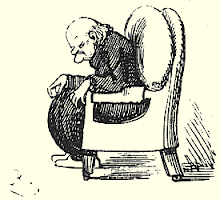If this isn't your thing, you've been forewarned. Go somewhere else today, or take it like a grown-up.
If you're Terry Gross, and you got to this blog by Googling yourself, I'm very disappointed in you and your employer. Not surprised, just disappointed.
If you're Wilbert Rideau, and you got to this blog by Googling yourself, enjoy the ride, pal.
There. That's enough preamble, I think. Let's get on with the amble.
----------------------
I like NPR.
I listen to "On the Media," "All Things Considered," "Car Talk," "A Prairie Home Companion," "This American Life," "Thistle & Shamrock," "Morning Edition," "BBC Newshour," and pretty much whatever else I can wrap my hair-sprouting little ears around.
I consider myself a better person for having NPR in my life. I've never donated money to NPR, and I never will, but that's just how I roll. I'm a pretty tightfisted sonofabitch, unless I love you, in which case I will spend inordinate amounts of money to prop up your ego, make you smile, and/or enhance your personal satisfaction with life.
I like NPR. I don't love NPR. There is a definite difference. I like it, and I feel that my life is fuller and richer for liking it, but you won't catch me with a "I ,<3 NPR" bumpersticker on my Volvo's ass, like you'll find on the asses of many a Volvo where I live.
Why not?
Well, NPR has this funny, frankly repellent little habit of glorifying minority prisoners, usually murderers, that I sort of find, um, distasteful.
First came Mumia Abu-Jamal. Those of you who read this blog as it should be read (obsessively and with a steady supply of nachos con carne) will recognize this name. Mumia Abu-Jamal blew apart the head of a Philadelphia Police Officer named Daniel Faulkner on December 9th, 1981. While Jamal was in prison, NPR commissioned him to record "a series of monthly commentaries on the subject of crime and punishment." Understandably, Philadelphia's Fraternal Order of Police popped a gasket when they heard, and they raised such an uproar that the plans were canceled. His commentaries later appeared in print, in one of the many books he was allowed to write and publish whilst on Death Row.
Now we have Wilbert Rideau. His name isn't nearly as prominent and recognizable as Jamal's, but his crime is no less horrific. In 1961, Rideau robbed a bank in Louisiana. He kidnapped two tellers and the bank manager, shoving them all into a car owned by one of the tellers, Julia Ferguson. The manager, Jay Hickman, leapt out of the car in an attempt to escape. Rideau jumped out and shot Hickman, wounding him. He then shot tellers Dora McCain and Julia Ferguson. Hickman fled and hid, McCain played dead, but Rideau found Ferguson still alive. He stabbed Ferguson straight through the heart with a hunting knife, killing her. Rideau never denied that he robbed the bank, and he never denied shooting McCain & Hickman, and killing Ferguson. He was sentenced to death by an all-white jury but, in 1972, when the death penalty was abolished in Louisiana, his sentence was commuted to life imprisonment.
While in jail, he became the head of the Angolite, the prison newspaper for the Louisiana State Penitentiary (commonly referred to as Angola). His writing earned him nominations for seven national literary awards. He was NPR's "Fresh Air" prison correspondent from 1992-1995. He has had book deals and book signings and probably even book release parties.
In 2000, Rideau's conviction for murder was overturned on the basis that blacks had been excluded from his original trial jury. He was retried and found guilty of manslaughter and sentenced to 21 years in prison. Having already served 44, he was released.
He's been referred to by "Life" magazine as "America's Most Rehabilitated Prisoner."
You can probably guess by now that I'm not someone who's easily impressed by such accolades.
The fact that NPR feels compelled to lay laurels and garlands at the feet of a convicted, admitted murderer is something that utterly repulses me. If I had a subscription, I'd cancel it. If I donated money, I'd make them give it back. If I had a ceramic NPR coffee mug, I'd break it on my formica counter. I considered writing an angry letter, but nobody reads those, so I thought I'd write an angry blog post, because I know at least you will read that.
And maybe you'll be angry with me. Or maybe you'll challenge me to look at this in a different light. I've got to warn you, though: I'm a pretty tough nut to crack, especially when innocent blood has been spilt.
You may be of the opinion that Wilbert Rideau, who spent forty-four years of his life in prison, is a victim. This is certainly how NPR looks at him, or at least, it's one of the ways in which NPR looks at him. They also look at him, I feel, as a lightning rod-- for controversy, for educated, well-coiffed white people (some in Volvos!) to feel good about championing, from a comfortable distance, of course.
NPR loves the eloquent, felonious minority. It gets practically squishy when it learns of a well-written, well-spoken minority prisoner who "tells it like it is" and who "isn't afraid to go there." Someone who brings a sensitive, weathered, dignified face to the imprisoned masses of America. If they turn out to be wrongly convicted and incarcerated, so much the better-- but NPR is not particular about that.
You can practically smell the festering, woefully inadequate and apologetic tone of the following sentence in the piece about Rideau on NPR's website:
"Rideau always acknowledged his victims and took full responsibility for his crime."
As if we should all be lining up to pin a merit badge on his shirt. Careful, Wilbert: I may pin that sucker on a little harder than expected.
Probably in a month or two, NPR will throw an obligatory, conciliatory bone to Julia Ferguson's family members, if there are any who are still alive, by giving them a minute or two of airtime, you know-- to show how fair and balanced they are. And, with that, their hands will be as clean as the morning dew. Certainly cleaner than Wilbert Rideau's hands-- forever stained with the blood that flowed from a grotesque murder, from the heart of an innocent woman. I agree that this is America, and that everybody deserves a voice. But does the voice of a convicted murderer need to be on NPR? Maybe Rideau should stick to blogging.
Not only that: what about Julia Ferguson's voice? Why does the man who silenced that voice forever get to be heard? Where is the justice? Where is the logic? Where is the sense of decency?
They say that time heals all wounds, but it doesn't bring murdered people back to life, and it doesn't create celebrated journalists out of their killers.
Or does it?
Lauren Soloy’s The Newest Gnome: A Quiet Adventure
10 months ago














I appreciate this post. I am of the opinion that we should reinstate hangings in the courthouse square and death by firing squad. To think of all the money spent on death-row inmates is ridiculous in this economy, especially when ropes and bullets are relatively cheap.
ReplyDelete"The fact that NPR feels compelled to lay laurels and garlands at the feet of a convicted, admitted murderer is something that utterly repulses me."
ReplyDeleteSo, if he was dishonest and said he didn't do it, it would somehow be better? It's worse because he admitted it? How so?
Shinx:
ReplyDeleteIt's neither worse nor better that he admitted it. I just don't think he should be congratulated for having the morality and decency to be honest when he lacked morality and decency by plunging a shank into an already-wounded woman's heart.
I was just using "convicted, admitted murderer" as an efficient way to describe Mr. Rideau, you know, the way NPR chooses to use "award-winning journalist" as their efficient way to describe him.
Oh I agree with your sentiments, I just thought it was odd to think that honesty was morally deplorable.
ReplyDeleteHow can he be an award winning journalist? Prisoners aren't part of society. They don't have professions.
I'm with you Mr. Apron. Acknowledging you've done a wrong doesn't take it away, from murderers to philanderers, to anyone else who hurts people.
ReplyDeletePS - I like you, but I don't like NPR or their listeners. Pretentious, self-important types who who drive around in safe, nonflashy cars like Volvos.
ReplyDeleteOh wait...
Maria--
ReplyDeleteI like you, too. And, funnily enough, my post for Sunday addresses my Volvo problem.
Yes, world. I already have posts done through Sunday. And, yes, world. I blog on the weekends.
I would agree that it is probably not a good idea to give murderers a mass public forum and I personally have no interest in what they may have to say. BUT, I have to point out two things.
ReplyDeleteOne is that all media sources try to publish things that interest the public and this country has an appetite for "the dark side" of human nature. Think about how well slasher movies due at the box office. For this we must blame ourselves.
Second,(and this may be the more accurate explanation) the folks at NPR have to provide programming 24 hours a day, 365 days a year. AND do so on a finite budget. You gotta know that some of that is going to be scraped off of the bottom of the 'ol barrel of ideas.
As much as you would like to think that every hour of air time can be filled with programing
that you don't find inappropriate, I don't see you
up at four in the morning providing content. Uh,
hmmmm........ I see I am wrong about that one.
So maybe you do know how hard it is to keep
people engaged around the clock.
I couldn't agree more. I just read that Malcolm X's killer went free this week as well. Malcolm X, whether you agree with him or not, was a pretty substantial voice that we can no longer hear while his killer is not only allowed to speak but walk freely.
ReplyDeleteThe death penalty, as many suggest, may not be a deterrent, but it is justice.